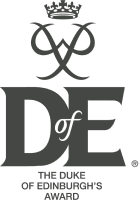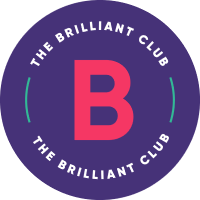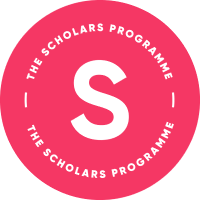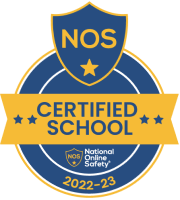This subject is part of the Faculty of Science and PE
Our Head of Faculty is
Mr D Bell – dbell@tcat.school
Our subject teachers and email addresses are
Mr M. Langley - Director of STEM - mlangley@tcat.school
Mrs G. Deeks - gdeeks@tcat.school
Mrs C Evans cevans@tcat.school
Miss I Muirhead imuirhead@tcat.school
Mr A Sercombe asercombe@tcat.school
Mrs G. Upperdine -gupperdine@tcat.school
Our subject intent
Is to build upon and deepen pupils knowledge in a range of scientific ideas in the subject disciplines of biology, chemistry and physics, to provide pupils with the foundations for understanding the natural world and to enhance their lives in an increasingly technological society.
Pupils should understand that science is about working objectively, modifying explanations to take account of new evidence and ideas and subjecting results to peer review. Pupils should decide on the appropriate type of scientific enquiry to undertake to answer their own questions and develop a deeper understanding of factors to be considered when collecting, recording and processing data. They should evaluate their results and identify further questions arising from them.
Curriculum Subject Offer
Year 7 Science
Subject intent
In year 7 students build upon the knowledge they have gained at KS1 and 2 to develop a deeper understanding of the world around them and they begin to identify links between the 3 separate disciplines.
Topic Breakdown
| Half term 1 |
Half term 2 |
|
|
Autumn |
Introduction to Science
Cells, tissues, organs and systems Mixtures and separation |
Sexual reproduction
Energy |
|
Spring |
Acids and alkalis
Current electricity |
Muscles and bones
The Particle model |
|
Summer |
Ecosystems
Forces |
Atoms, elements and compounds
Sound |
You will be assessed at the end of each topic with a waterfall assessment and at the end of the year with a 1-hour year assessment.
Science full Scheme of Work - Year 7
Year 8 Science
Subject intent
In year 7 you learnt about the basics of Science in Biology, Chemistry and Physics.
In year 8 pupils will continue to build upon the knowledge they have gained at KS1, 2 and year 7 to develop a deeper understanding of the world around them and they begin to identify links between the 3 separate disciplines.
Topic Breakdown
|
Half term 1 |
Half term 2 |
|
|
Autumn |
Food and nutrition
Combustion Plants and reproduction Fluids |
Plants and reproduction
Fluids Light The Periodic Table |
|
Spring |
Light
The Periodic Table Breathing and respiration Metals and their uses |
Breathing and respiration
Metals and their uses Energy transfers Earth and Space |
|
Summer |
Unicellular organisms
Making materials Forces and motion |
Genetics and evolution
Force fields and electromagnets Plant growth Reactivity |
You will be assessed at the end of each unit as in year 7 with waterfall assessment and a final 1 hour end of year exam.
Science full Scheme of Work - Year 8
Year 9 Science
Subject intent
In year 8 you learnt about and consolidated their learning from KS2 and year 7. They revisited topics from year 7 and added more knowledge in the spirally curriculum.
During year 9 pupils consolidate their prior learning and apply their knowledge to an independent project, through the nationally recognised CREST Awards, before transitioning into more advanced study at GCSE level.
Topic Breakdown
|
|
Half term 1 |
Half term 2 |
|
Autumn |
CREST award
Physics revision |
Biology revision
Physics revision |
|
Spring |
Biology transition
Chemistry revision |
B1 – Key concepts in Biology
Chemistry transition |
|
Summer |
B1
C1/2 |
B2
P1/2 |
You will be assessed the same as in year 7 and 8 with a waterfall assessment at the end of each topic. Before GCSE content begins you will have an end of KS3 exam where you will be assessed on content from year 7, 8 and 9. Once GCSE content begins you will again be assessed per topic.
Science full Scheme of Work - Year 9
Year 10 Science
Subject intent
Throughout KS4 students continue to deepen their knowledge and understanding in each of the subject disciplines, with the majority of students following the Edexcel GCSE Combined Science specification. For some students it is more appropriate for them to explore each of the disciplines in more detail, studying towards separate GCSEs in Biology, Chemistry and Physics. This can provide the platform for more advanced studies, establishing the basis for a wide range of careers. Students also have the option to study Animal Care as one of their option subjects.
Overview of the GCSE course:
| Biology | Chemistry | Physics | |
| Autumn | Topic 1 – Key concepts in biology
Topic 2 – Cells and control |
Topic 1 – Key concepts in chemistry
Topic 2 – States of matter and mixtures |
Topic 1 – Key concepts of physics
Topic 2 – Motion and forces |
| Spring | Topic 3 – Genetics
Topic 4– Natural selection and genetic modification |
Topic 3 –Chemical changes
Topic 4 – Extracting metals and equilibria |
Topic 3 – Conservation of energy
Topic 4 – Waves |
| Summer | Topic 5 – Health, disease and the development of medicines
Topic 6 – Plant structures and their functions |
Topic 5 – Separate chemistry 1 (Triple science only)
Topic 6 – Groups in the periodic table |
Topic 5 – Light and the electromagnetic spectrum
Topic 6 – Radioactivity Topic 7 – Astronomy (Triple science only) |
You will be assessed the same as in KS3 with an end of topic test at the end of each topic. At the end of year 10 you will have a mock paper 1 exam. In year 11 you will have mock GCSE exams and continue with topic assessments.
Science full Scheme of Work - KS4
Year 11 Science
Subject intent
Throughout KS4 students continue to deepen their knowledge and understanding in each of the subject disciplines, with the majority of students following the Edexcel GCSE Combined Science specification. For some students it is more appropriate for them to explore each of the disciplines in more detail, studying towards separate GCSEs in Biology, Chemistry and Physics. This can provide the platform for more advanced studies, establishing the basis for a wide range of careers. Students also have the option to study Animal Care as one of their option subjects.
Overview of the GCSE course:
|
|
Biology | Chemistry |
Physics |
|
Autumn |
Topic 6 – Plant structures and their functions
Topic 7 – Animal coordination, control and homeostasis |
Topic 6 – Groups in the periodic table
Topic 7 – Rates of reaction and energy changes |
Topic 8 – Energy – Forces doing work
Topic 9 – Forces and their effects Topic 10 – Electricity and circuits Topic 11 – Static electricity (Triple science only) |
|
Spring |
Topic 8 – Exchange and transport in animals
Topic 9 – Ecosystems and material cycles
|
Topic 8 – Fuels and Earth science
Topic 9 – Separate chemistry 2 (Triple science only)
|
Topic 12 – Magnetism and the motor effect
Topic 13 – Electromagnetic induction Topic 14 – Particle model Topic 15 – Forces and matter |
|
Summer |
Revision and GCSE exams | Revision and GCSE exams | Revision and GCSE exams |
You will be assessed the same as in KS3 with an end of topic test at the end of each topic. At the end of year 10 you will have a mock paper 1 exam. In year 11 you will have mock GCSE exams and continue with topic assessments.
Science full Scheme of Work - KS4
Within each subject we have our own specific personalised marking and feeback policy.
|
Faculty: Science and PE |
||
|
|
KS3 |
KS4 |
|
Verbal dialogue |
Teachers circulate with purpose, checking pupils’ work, marking if appropriate and collecting information on whole-class strengths, errors, misconceptions, knowledge gaps etc. The teacher adjusts their lesson accordingly. Starter whole class feedback most lessons to reflect on last lesson and correct mistakes In PE verbal dialogue as a result of observation is the most used form of feedback |
Teachers circulate with purpose, checking pupils’ work, marking if appropriate and collecting information on whole-class strengths, errors, misconceptions, knowledge gaps etc. The teacher adjusts their lesson accordingly. Starter whole class feedback most lessons to reflect on last lesson and correct mistakes |
|
Self/peer assessment |
Written feedback through strengths/targets and annotations. Peer and self-assessment should be completed in blue pen. |
Written feedback through strengths/targets and annotations. Peer and self-assessment should be completed in blue pen. |
|
Whole Class Feedback |
Whole class feedback given at the start of most lessons usually verbally to address misconceptions from last lesson and share positives. |
Whole class feedback given at the start of most lessons usually verbally to address misconceptions from last lesson and share positives. |
|
Written comments |
Done using marking strength and target codes on a key piece of work per topic. Codes are written into books and pupils copy the targets and strengths associated with the codes into their books. They then complete the corresponding action. |
Done using marking strength and target codes on a key piece of work per topic. In KS4 this is on 6-mark exam questions. Codes are written into books and pupils copy the targets and strengths associated with the codes into their books. They then complete the corresponding action. Pupils will correct answers in blue using a mark scheme |
|
Frequency of feedback |
Live feedback and responsive teaching will take place in most lessons where pupils have been asked to complete tasks Whole-class feedback will take place most lessons. Peer/self-assessment Used in most lessons Written comments will take place once per topic on a key piece of work chosen by the class teacher. Marking codes will be used. |
Live feedback and responsive teaching will take place in most lessons where pupils have been asked to complete tasks Whole-class feedback will take place most lessons. Peer/self-assessment Used in most lessons Written comments will take place once per topic on a key piece of work chosen by the class teacher. Marking codes will be used. 6-mark exam questions |
|
Response to feedback |
When directed after marking/whole class feedback, pupils will be expected to make a response in blue pen. In other instances, pupils will be expected to apply their feedback to a different task under the title DIRT. This would be done in blue pen. In further instances, pupils may be asked to answer questions posed by the teacher. Corrections to key word spellings highlighted also to be corrected |
When directed after marking/whole class feedback, pupils will be expected to make a response in blue pen. In other instances, pupils will be expected to apply their feedback to a different task under the title DIRT. This would be done in blue pen. In further instances, pupils may be asked to answer questions posed by the teacher. Corrections to key word spellings highlighted also to be corrected |
|
Summative assessment |
Waterfall assessments completed at the end of every completed topic. 50% content from topic and 50% from previously taught content. End of year exams to cover all content covered through the year. |
Waterfall assessments completed at the end of every completed topic. 50% content from topic and 50% from previously taught content. End of year exams to cover all content covered through the year. Mocks for 10 and 11.
|






